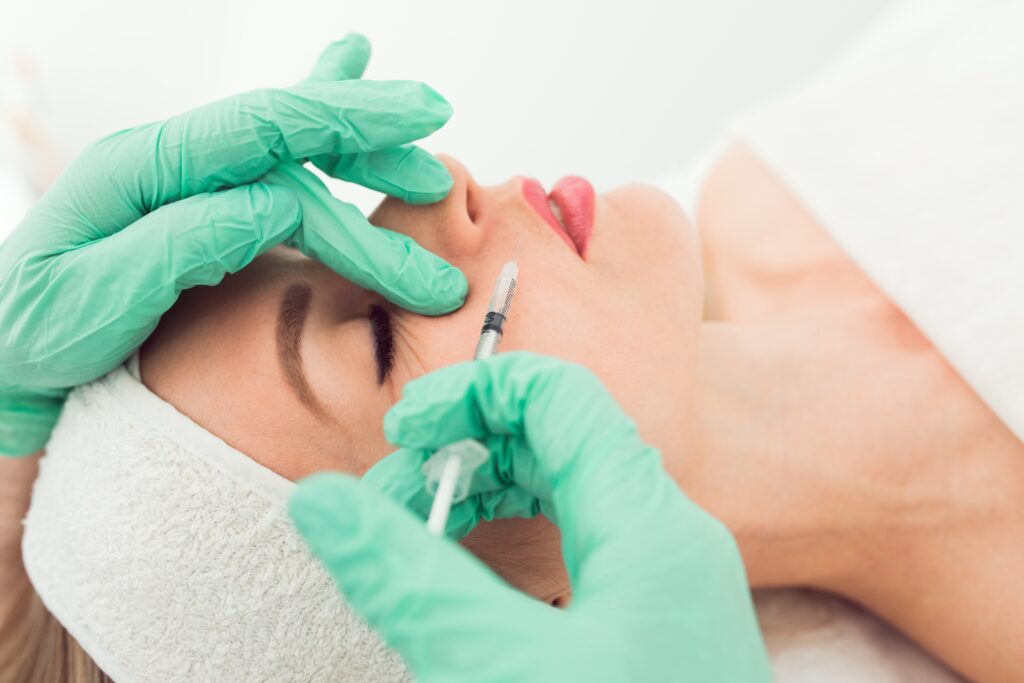Between 4 and 5 million people in the United States opt for Botox every year, making it the most sought-after non-surgical cosmetic treatment. It works by temporarily minimizing or eliminating wrinkles and expression lines on the forehead, between the eyebrows, and near the eyes where crow’s feet typically form, but it can also be used in other areas of the face, such as around the mouth, chin, jaw, and neck.
Despite its popularity, there are still many doubts associated with Botox. That’s why we will address some of the most common questions, such as: “What is Botox?”, “How long does Botox last?”, and “How much does Botox cost?”.
What is Botox?

Botox is a brand of botulinum toxin produced by the bacterium Clostridium botulinum, the same bacterium that causes botulism. However, this toxin is purified and authorized by the U.S. Food and Drug Administration (FDA) for medical and cosmetic applications, guaranteeing that its composition, administration, and dosage are closely monitored. When administered correctly, it is entirely safe and provides a range of advantages.
In cosmetic treatments, it functions by blocking specific chemical signals from nerves, preventing the muscle from contracting and resulting in the temporary relaxation of facial muscles that produce wrinkles or expression lines.
Aside from Botox, there are other brands of botulinum toxin type A injections available, including Dysport®, Xeomin®, Jeuveau®, and Daxxify®.
How Long Does Botox Last?
As we said before, Botox is a non-invasive injectable method that gives temporary results, which means its effect fades away eventually.
Surely you must have wondered first: “How long does it take for Botox to work?”. Typically, its effects become noticeable within 1 to 3 days of the treatment, although some patients may take up to one or two weeks to see the full results.
Now, the duration of Botox’s effects varies depending on several factors, including the area of injection, the body’s metabolic rate, age, dose, and the frequency of treatments.
Patients can expect a shorter duration of results in areas with higher muscle activity, such as around the eyes. Also, those with a faster metabolism, such as athletes, will notice that the treatment lasts less because their bodies metabolize the substance faster. Older patients typically have less skin elasticity and collagen, which can lead to shorter-lasting results. As expected, higher doses give longer-lasting results, but practitioners typically opt for conservative doses to start based on each patient’s unique characteristics. Finally, patients who have undergone multiple injections will see longer-lasting and more effective results, although it is important to remember that it is not advisable to overuse Botox as the body may develop an immune response, impacting its effectiveness.

The average duration of Botox results usually falls between 3 and 6 months, with most patients enjoying the effects for approximately 4 months. Using sunscreen may help prolong the results, and regular follow-up injections every three to six months can help maintain its benefits.
How Much Does Botox Cost?
The cost of Botox treatment can vary significantly based on the patient’s desired treatment areas. Injecting just one region, like between the eyebrows, is typically more affordable than targeting several areas such as the forehead, crow’s feet, and chin. Generally, a unit of Botox costs between $10 and $15, and the total treatment cost can range from $200 to $600.
Botox Side Effects
Typically, Botox injections are considered safe, particularly when administered by a board-certified plastic surgeon (as they should always be!). Nonetheless, there can be some rare side effects associated with it, which may occur if the person administering the treatment lacks the necessary experience or training or if the patient doesn’t follow the recommended aftercare. Some potential risks of Botox include droopy eyelids, arched eyebrows, headaches, bruising, swelling, or even infection.
Botox Aftercare
To achieve the best possible results and minimize the risk of undesirable effects, there are some precautions to keep in mind after receiving Botox injections. Typically, it is recommended to avoid lying down or exercising for at least three hours after the procedure. It is also advised to stay away from saunas or hot tubs for at least four hours, as the heat can increase blood pressure and lead to bruising. Furthermore, you should avoid facial massages for at least 24 hours. Other than that, you can resume your daily routine.
Botox injections offer a quick and easy way to achieve a more youthful appearance without the need for invasive procedures. It is a safe method for reducing the signs of aging, with temporary results that can last for several months. If you’re considering Botox as a cosmetic treatment, contact us to schedule a consultation and learn more about how this procedure can help you achieve your desired look.

